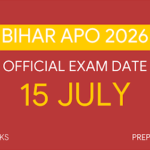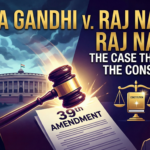Get complete details on State Judicial Service Exams, including eligibility, syllabus, exam pattern, preparation strategies, and tips to become a Civil Judge in India.
The State Judicial Service Exams are a prestigious pathway for aspiring legal professionals looking to serve as judges in various state courts across India. These exams offer a direct route to becoming a Judicial Officer, with the opportunity to serve in lower or higher courts depending on the state. If you’re passionate about law, justice, and serving the public through the judiciary, this guide will provide essential details on the judiciary mains exam, including the exam pattern, syllabus, eligibility criteria, application process, and more.
Table of Contents
ToggleAbout Judicial Service Exams
The Judicial Service Exams are conducted by state public service commissions (SPSCs) or high courts in various states across India to recruit candidates for judicial positions like Civil Judge (Junior Division) and Civil Judge (Senior Division). The exams evaluate candidates’ legal knowledge, reasoning ability, and aptitude for the judicial profession. The state judicial exam syllabus, pattern, and eligibility criteria can vary by state, but they generally follow a similar structure. These exams are highly competitive, requiring rigorous preparation across various law subjects, along with a solid understanding of the Indian Constitution and legal procedures.
Examination Pattern for Judiciary Exams
The Judicial Service Exams typically consist of three stages:
Preliminary Examination (Objective Type)
The Judiciary prelims exam assesses general knowledge, legal aptitude, and basic law subjects. Questions are usually objective in nature and cover topics such as:
- General Knowledge
- Current Affairs
- Indian Penal Code (IPC)
- Indian Evidence Act
- Civil Procedure Code (CPC) and Criminal Procedure Code (CrPC)
- Constitutional Law
Main Examination (Descriptive Type)
The Judiciary Mains Exam evaluates candidates’ in-depth knowledge of law. It includes multiple papers, such as:
- General Knowledge
- Law Subjects (Constitutional Law, IPC, CPC, CrPC, etc.)
- Essay Writing
This stage also tests candidates’ ability to write clear, structured, and legally correct responses.
Interview
The interview assesses candidates’ personality, legal knowledge, reasoning ability, and understanding of judicial functions, to determine their suitability for the position of a judge.
Marking Scheme and Duration in Prelims
- Paper 1 (General Knowledge): 150 marks, Duration: 2 hours
- Paper 2 (Law): 300 marks, Duration: 2 hours
- Total Marks for the Preliminary Exam: 450 marks
Marks Distribution and Duration
Each paper in the State Judiciary mains exam has different marks allocated, and the Duration for all papers is 3 hours.
Negative Marking
There is a negative marking of 1/3rd or -0.33 marks for each incorrect answer.
Syllabus for Judicial Service Exams
The syllabus for Judicial Service Exams generally covers the following subjects:
Preliminary Examination
- General Knowledge: National and international events, Indian history, geography, politics, economy, environment and Science and Technology.
- Legal Awareness: Basics of law, Constitutional Law, Jurisprudence, Bharatiya Nyaya Sanhita (BNS), Civil Procedure Code (CPC), Bharatiya Nagarik Suraksha Sanhita (BNSS), Bharatiya Sakshya Adhiniyam, etc.
- Current Affairs: Key legal developments and landmark judgments.
Main Examination (Descriptive)
- Constitutional Law: Indian Constitution, Fundamental Rights, Directive Principles of State Policy, Judiciary, and Legal Reforms.
- Criminal Law: BNS, BNSS, BSA, Law of Torts, and Legal Maxims.
- Civil Law: Civil Procedure Code, Law of Contracts, Specific Relief Act, Limitation Act, etc.
- Family Law: Hindu Marriage Act, Muslim Personal Law, Indian Divorce Act, Adoption, and Guardianship.
- Environmental Law: Environmental Protection Act, Public Interest Litigation (PIL), and other environmental statutes.
Eligibility Criteria for Judicial Service Exams
To be eligible for the State Judicial Service Exams, candidates must meet the following criteria, which can vary depending on the state:
Criteria Details
- Nationality: Must be an Indian citizen.
- Age Limit: Generally, between 21 to 35 years (Relaxations apply for SC/ST/OBC candidates).
- Educational Qualification: A graduate degree in law (LL.B) from a recognized university.
- Experience: Some states may require 2-3 years of practice as an advocate (in the case of senior division positions).
- Physical Fitness: Some states may require specific physical standards for certain posts.
- Number of Attempts: It Varies by category (General: 3-6 attempts, OBC: 9 attempts, SC/ST: no limit)
The State Judicial Service Exams offer a prestigious career in the Indian legal system, with the opportunity to serve as a judge and play a key role in delivering justice. To succeed in the judiciary mains exam, it’s essential to understand the exam pattern, syllabus, and eligibility criteria.
- Dying declaration

- Bihar APO Exam Date 2026: Prelims Scheduled for July 15 – Check Official Notification

- UP APO Exam Date 2026 Announced: Check UPPSC Official Calendar & Schedule

- Indian Army JAG 124 Notification 2026: Vacancies, Eligibility, and Apply Online

- Official IBPS 2026-27 Calendar Out: Check SO Law & RRB Scale II Dates

